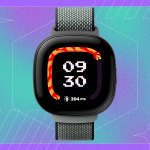Dmitry Rogulin/TASS via Getty Images
- A new study found that 87% of new mothers who had detectable COVID-19 antibodies shared them with their newborns through the umbilical cord.
- The find suggests it’s possible that newborn babies can confer some protective COVID-19 immunity from a mother’s infection during pregnancy.
- It also raises questions about whether vaccinating pregnant people might help protect their babies from infections after birth.
- Visit Business Insider’s homepage for more stories.
Pregnant people who get COVID-19 may pass some disease-fighting benefits along to their babies, a new study published Friday in the journal JAMA Pediatrics suggests.
The study measured COVID-19 antibodies in 83 new mothers at a Pennsylvania hospital last year, and found 87% of their newborns developed measurable antibodies in their umbilical cords. The antibodies popped up both in the cords of babies whose mothers had coronavirus symptoms, and those who had none.
That doesn’t necessarily mean that newborns whose mothers have had COVID-19 will be immune to the novel coronavirus, but it is a sign that they could have some form of protection against future infections, especially during their first months of life.
The study also found that people who’d had COVID-19 earlier on in their pregnancy had a better chance of transferring antibodies across the placenta to their fetus. This aligns with what we know about how long it can take a person’s body to develop antibodies after any coronavirus infection: typically, at least 1-3 weeks.
The study raises questions about whether vaccinating pregnant women against COVID-19 could help protect their newborns
Martin Bureau/AFP via Getty Images
Given that it’s possible that mothers who’ve had COVID could pass on some level of viral protection to their babies, it’s also possible that “maternal vaccination could do the same,” Dr. Flor Munoz, an infectious disease expert from Baylor College of Medicine, said in an editorial that accompanied the study’s release on Friday.
Maternal vaccination during pregnancy is already how many newborns are temporarily protected from other dangerous but vaccine-preventable diseases, including influenza, and whooping cough.
It’s not clear yet if that would be the case with COVID-19, but it’s an important question to consider, given that there are no coronavirus vaccines authorized for babies or children so far.
Munoz suggested that “maternal vaccination starting in the early second trimester” might be the best time, in order to help protect the baby as well as the mother from future infection.
“The timing of maternal vaccination to protect the infant, as opposed to the mother alone, would necessitate an adequate interval from vaccination to delivery (of at least 4 weeks),” Munoz added.
Data on pregnant women and COVID-19 vaccines are scarce
Jack Guez/AFP via Getty Images
Because pregnant people were intentionally left out of many COVID-19 vaccine trials, there’s still not enough data to definitively rule coronavirus vaccines are safe for expectant mothers.
“There is no data that suggests these vaccines cause harm in pregnant women – but there just isn’t a lot of data,” immunologist Scott Hensley, who co-authored the study, told The Philadelphia Inquirer.
Both the US Centers for Disease Control and the American College of Obstetricians and Gynecologists (ACOG) say if pregnant women want a vaccine, and are in a priority position to get one (i.e. healthcare workers, teachers), they should feel free to go ahead.
Dr. Mark Turrentine, a member of the COVID-19 expert group at the ACOG told the New York Times this new study shows how important it is to include more pregnant women in future vaccine trials, “particularly when the benefit of vaccination is greater than the potential risk of a life-threatening disease.”
Pregnant people who contract COVID-19 are at slightly greater risk of developing severe and fatal coronavirus infections. If you’re pregnant and wondering whether you should take a coronavirus vaccine, talk to your doctor or vaccine administrator about it.
Powered by WPeMatico






